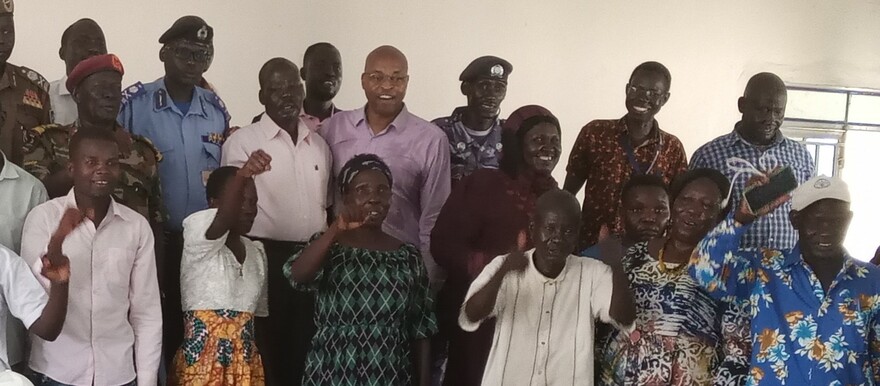A two-day human rights training session for local government officials in Torit concluded on Wednesday with significant resolutions.
The training, organized by the UNMISS Human Rights Division in South Sudan’s Eastern Equatoria State, aimed to enhance human rights, access to justice, and accountability in the country’s judicial system.
The event held under the theme, “Human Rights, Access to Justice, and Accountability,” brought together members of the SSPDF, Police, Prison Service, and youth leaders from Torit, Magwi, Ikotos, and Lafon counties. The attendees collectively agreed on several crucial resolutions, including the need to combat corruption and promote fairness within the justice system.
Vitale Abure Benjamin, executive director of the Torit-based national organization Value Interest Nonviolent Alliance (VINA), shared the resolutions during the training. He emphasized the importance of ending arbitrary arrests and torture to ensure human rights are respected throughout the nation.
Benjamin proposed practical measures such as deploying additional police officers at the grassroots community level to effectively combat crime, promoting awareness of legal rights in remote villages and towns, and establishing clear procedures for reporting and sharing information on law violations.
To bolster the integrity of the justice system, Benjamin urged the state government to lobby the national government for increased deployment of armed forces. Additionally, he highlighted the significance of motivating judges by providing them with higher salaries to curb corruption within the judiciary.
Benjamin also stressed the need to empower community leaders, augment police forces, and disarm civilians in rural areas. He called for suspects to be promptly apprehended and presented before competent courts of law, while emphasizing the importance of ceasing torture against those arrested.
Anthony Nwapa, the head of the Human Rights Division at UNMISS’s Torit field office, expressed satisfaction with the training’s outcomes. He pledged to continue raising awareness on human rights among key stakeholders, including those in positions of authority, to combat human rights abuses effectively.
“I am delighted that we have made significant progress over the past two days. I urge all of us to remain committed to the principles of good governance, human rights, and the rule of law. Together, we can build a progressive and developed society for our great state. Let us continue to unite our people in peace and human rights, as this state has already set an example in terms of development and unity,” stated Nwapa.
Maj General Angon Ungom Chut, the acting commander at Division 7 SSPDF in Torit, advocated for the continuation of such forums on human rights. He stressed the importance of inclusive participation, especially among groups in the community who may not be fully aware of recent developments in protecting human rights.
Furthermore, Siama Nartisio, the advisor for human rights in Eastern Equatoria State, acknowledged the support of peace partners in tackling the challenges faced by the country. She called on organized forces and chiefs to understand their roles better to foster trust among the populace.
“Implementation of the discussed resolutions remains our primary objective. It is essential for each of us to understand our respective roles. As women, we were initially unaware of our rights, but now even those in rural areas have knowledge of their rights. I have learned how to address land-grabbing issues and exercise my rights. All organized forces, including the SSPDF, police, prison services, and chiefs, are now well aware of their roles. Instead of blaming one another, we must strive to grant rights to all marginalized individuals. We have heard enough; it is time for us to fulfil our roles in the fight for human rights,” stated Nartisio.
The successful training session in Torit has paved the way for a more transparent and accountable justice system in South Sudan, with increased salaries for judges serving as a crucial step in combatting corruption and upholding the rule of law.




